Why I am a proud Liberal
I am a liberal and I am proud to call myself one. No, I did not fall and hit my head, I’m being quite serious. Let me explain with a little bit of history.
How it all started
The Industrial Revolution of the late 1800s brought such rapid change to the world (and America particularly) that many questions arose regarding the spheres of economics, politics, and culture, and whether they were adequate to meet the needs of the Industrial Age. Many leading intellectuals of the day came to believe that there was a need to reform all three of these spheres of life; and further, most academics agreed with the assumption that government ought to be involved at the forefront of these efforts to reform American economics, culture, and politics to meet the needs of an industrialized world.
In Europe, such strains of thought had already resulted in new ideas regarding economic models and new political structures to support them. Out of this, the economic theory of communism evolved, with the political structure of socialism to support it; expressed most comprehensively by Karl Marx in The Communist Manifesto. Politically and economically, most nations in continental Europe were in disarray and people were suffering. Marx believed that people would rise up against their governments, demand socialism, and pursue the communist dream; and moreover, he believed that they should. Here in America, leading intellectuals were sympathetic to Marx, by and large. Socialism was a new political model and its accompanying economic model of communism promised a utopian world where all the ills of society: poverty, hunger, and want, would be relegated to a dysfunctional past. Thus, many American academics viewed communism and socialism as a significant improvement over traditional American self-reliance. Some even saw communism and socialism as being as big a leap forward in the evolution of society as the founding of America had been, so why should America not lead the world from the bright success of American liberty into an even brighter communist/socialist future?
But they had a problem. Anecdotal exceptions aside, people in America were not suffering. Unlike in Europe with its internecine and factional strife with its associated economic disasters, America was booming, rapidly becoming an economic giant. With liberty as their birthright, millionaires were being created every day in the Land of Opportunity. Even America’s poor were well on their way toward becoming the wealthiest poor in the world, and even poor people loved the liberty and freedoms they were blessed to have in America because it allowed them to dream and strive for all they could achieve. This gave them a sense of hope that no other place on earth could provide drawing immigrants from across the world to America’s shores where people could be optimistic even during times of struggle. In short, Marx’s revolutionary model could never work in America. If socialism and communism were to be achieved here, the academics reasoned, it would have to come some other way.
So, the intellectuals thought and thought, speculated and ruminated. Just how do you convince a society of mostly happy and optimistic people to abandon the source of their happiness and optimism for something that promises to be even better? The end result of all that thinking? The American Progressive Movement.
The link, then, between socialism and progressivism, is right there at the beginning. So, what exactly is progressivism?
The academics believed that they had conceived of a way to realize the grand promises of communism and socialism here in America. Contented Americans would never rise up and demand it, of course, nor would they vote for it. Unable to grasp socialism’s promise, the vast majority of America’s provincial and uninformed populace would have to be assimilated into it gradually. So the answer was to progress toward socialism incrementally. It would take time, certainly, and most of the early pioneers of the movement might have even guessed that they would not live to see it; but certainly they hoped that they would, and they believed it was the right course for America – the more modern, more enlightened path forward.
As Progressivism grew in popularity among the academic elite it subsequently spread among politicians, quickly finding its share of adherents in both the Democrat and Republican parties. Theodore Roosevelt was an early champion of Progressivism in the Republican Party, while his successor in the White House, Woodrow Wilson, did the same in the Democratic Party. Progressive policies had their initial heyday in what is commonly called the Progressive Era running roughly from the late 1800s until the early 1920s when Progressives lost much their popular support when they finally succeeded in establishing Prohibition.
With the failure of Prohibition, Progressives suffered an incalculable blow to the reputation of their policies. The nation turned to Warren G. Harding and Calvin Coolidge, whose successive administrations were marked by a complete repudiation of Progressivism, dramatically shrinking the size and power of the federal government, cutting federal spending in half, reducing tax rates, and paying down the national debt. The economic result? The Roaring Twenties, a period of unprecedented innovation and widespread prosperity where the wealthy became wealthier, many in the middle classes became wealthy, and most people could afford to live well, further cementing popular opinion against progressivism. The American Progressive Movement now had a serious image problem on their hands, and if they failed to find a solution, their socialist dreams would be lost amid an American Renaissance of politics, economics, and culture.
The Origins of Liberalism
The word liberal is associated with the word freedom. It is derived from the Latin word liber, a word which means free. It is where we get the words liberty, libertine, and liberation. Politically, liberalism is a school of thought traceable back to Cicero and which winds its way forward in history to the English philosopher John Locke, the Scottish economist Adam Smith, the American writer Thomas Paine, and a young Boston lawyer named James Madison. In colonial America, these ideals inspired the struggle for independence and subsequently became codified in the United States’ Constitution.
American Liberalism, then, was the political ideology of government as “a necessary evil”, something to be kept as small as possible so as to ensure that it remains always under strict control and directly accountable to the people. American liberals promoted laissez-faire economics, citing Adam Smith’s “invisible hand” references to the natural market forces of capitalism and free enterprise. This idea of freedom from government control constituted a rejection of the aristocracy and the associated class barriers that still persisted in Europe and fostered a rugged spirit of self-reliance, a belief that the individual was supreme and earned success through merit alone (or failure due to the lack of it), and this led to people willing to risk a great deal for the potentially unlimited rewards, the underpinnings of what would come to be called American Exceptionalism.
This was the predominant political ideology in America, regardless of party. Whether Federalist or Democratic-Republican, Democrat or Whig, Republican or Democrat, the great debates that raged in the halls of Congress and legislatures throughout the country were debates over just how much liberalism was best, but there was hardly a dissenting voice arguing against liberalism itself. From the nation’s founding through the Civil War and on still through Reconstruction and the opening of The West, we were virtually without exception a nation of liberals, devoted to rugged individualism, personal liberty, and economic freedom. By the middle of the 19th century, we knew nothing else.
In fact, liberalism as a political ideal was so pervasive and had remained unchallenged for so long that there was little need to make reference to it as such. Consequently, the word fell out of common parlance and usage. The words freedom and liberty remained, but to speak of liberalism as a political school of thought was redundant. Eventually, only students of political history and political theory had any use for the word at all.
Putting it all together
So, what do you think the academics in the American Progressive Movement did when they found themselves roundly discredited and completely out of power and favor in the 1920s? Did they observe the beneficial effects of the ‘liberal’ policies of Harding and Coolidge and realize that socialism could never hope to provide such a degree of prosperity for so many? Well, no. More committed than ever to the conviction that socialism was far superior, they appropriated the word liberal from the likes of Harding and Coolidge (since no one was really using the word, anyway), and applied it to themselves. Since the word had also come to mean “to have something in abundance”, they were able to turn the word’s definition on its head. Now, instead of meaning “sufficient liberty to be free of government control”, now liberal means “sufficient government control to deprive liberty”. And now that those who cherish liberty were not the only political school of thought, they needed a name to distinguish themselves from those in the American Progressive Movement, now calling themselves liberals. So, to show their opposition to this new definition of liberalism they took the opposite word conservative. If the term was going to be used to describe how much government was desired, the word conservative seemed to fit the bill nicely.
Of course, the policies advocated by these people still don’t succeed, and this is no more apparent in contemporary history than now. Unfortunately, those who are still dedicated to the cause of liberty in America are having a bit of an identity crisis and the word conservative has been badly maligned and no longer seems to mean what it was supposed to mean. Conservatives seem to have grafted another definition of the word onto the political term and have concluded that to be politically conservative it follows that one must be a narrow thinker, rooted in the past, staid and predictable, even anachronistic. This word conservative, which we should never have had to use in the first place, has fractured us and led us into distractions and divergent factions when we should be able to unite in agreement on the thing that matters most: liberty.
So I say we take our word back. I am a liberal. I am a lover of liberty, individual freedom, and the politics of personal liberation. I want to invoke the spirit of Ronald Reagan, give John F. Kennedy a firm handshake, call up the ghost of Calvin Coolidge, and party with Davey Crockett. I want to argue with Jefferson, curse at Alexander Hamilton, and try to follow a conversation with James Madison. And yes, I would beg to polish the boots of George Washington and the Marquis de Lafayette. Great liberals, all.
Posted on February 23, 2013, in Commentary. Bookmark the permalink. Leave a comment.
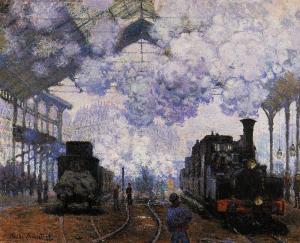
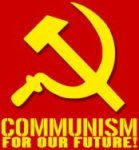
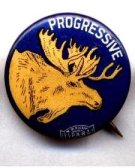
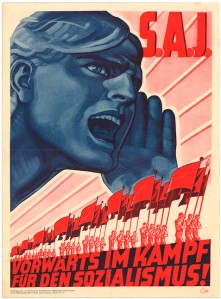
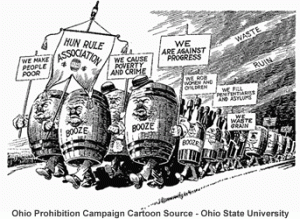
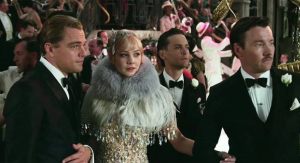
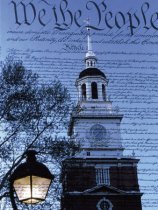

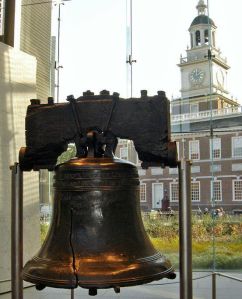
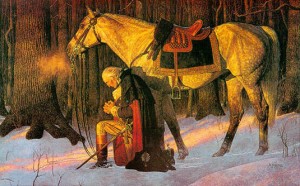
Leave a comment
Comments 0